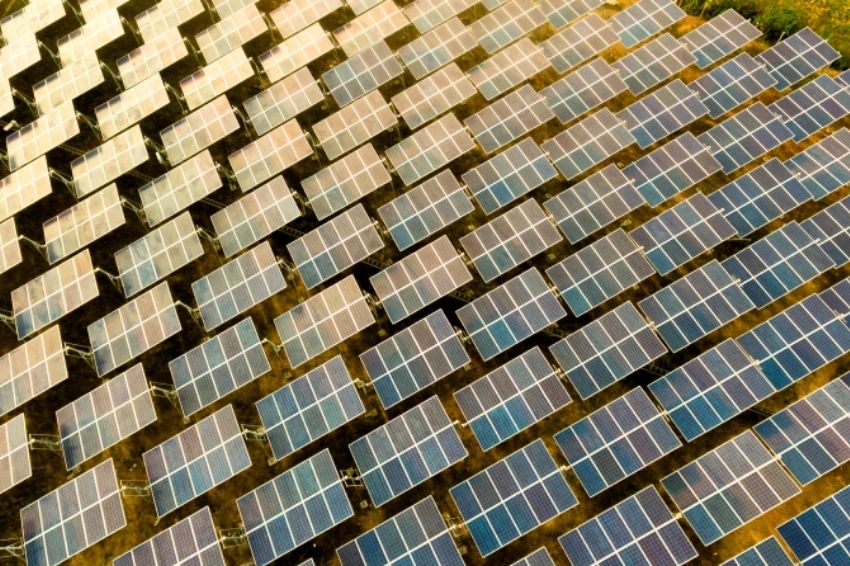Steel manufacturer and trader Usiminas and Canadian Solar signed a PPA (Power Purchase Agreement – long-term energy purchase and sale contract) to self-production of 30 MW of renewable energy for 15 years from 2025.
This amount represents around 12% of the volume of energy consumed by the company. The energy will be produced in a photovoltaic solar park to be installed in Luziânia (GO).
According to the companies, this is the first PPA signed directly between Canadian Solar and an industrial client, under a self-production structure in Brazil.
“In the year in which we completed 60 years of operations, the Usiminas its eyes are focused on the future and mobilized to guarantee the sustainability of its operations”, stated Sergio Leite, president of Usiminas.
“Initiatives such as this partnership with Canadian to supply solar energy for our operations are important steps for the company on its journey to be increasingly aligned with the principles of the ESG agenda“, he added
Construction of the solar park has investments estimated at R$ 1.35 billion and is expected to begin in the first quarter of 2024. The project will enter commercial operation in January 2025. “We are very proud to partner with Usiminas on the project,” highlighted Shawn Qu, president and CEO of Canadian Solar.
“This transaction contributes to increasing our presence and leadership position in the Brazilian market and demonstrates our ability to continue delivering sustainable, competitive and innovative solutions”, he concluded.


















6 Responses
Hi Wolf, thanks for your feedback. We rectify and add information
Let's explain why it is anti-legal. As we know, exemptions can be granted through simple ordinary laws (Constitutional Principle of Legality), however, taxing energy created, “so to speak by the Great Architect of the Universe, GAD U”, would require, due to the novelty (?!!!) of the triggering event, Complementary Law, as determined by the Fundamental Law of the Republic in its art. 146, III, a, transcribed below.
Art. 146. The complementary law is responsible for:
I – deal with conflicts of jurisdiction, in tax matters, between the Union, the States, the Federal District and the Municipalities;
II – regulate constitutional limitations on the power to tax;
III – establish general rules on tax legislation, especially on:
a) definition of taxes and their types, as well as, in relation to the taxes detailed in this Constitution, the respective triggering events, calculation bases and taxpayers;
But paying tribute to an energy offered abundantly by the creator would be almost heresy, don't you think?
Hugs for everyone
So it is. That is why the exemptions set out in Aneel Resolution 482/12, called by me Lobo Neves Resolution (that character from Posthumous Memoirs) reverberating in Minas Gerais State Law 23,762/2021 and Federal Law No. 14,300/2022, are absolutely narrow-minded and the expanding market corroborates what I am saying. Aneel's parameter in the aforementioned Resolution is very narrow, to say the least.
It is also anti-legal and anti-scientific, in other words, only part of it. In any case, HAPPY WOULD OUR PLANET BE IF IT WERE POSSIBLE (BUT IT IS NOT YET...) to obtain energy from clean, abundant and renewable sources, abandoning, setting aside, defeating, opposing the use of fossil fuels... It would be good, wouldn't it? What do you say Ericka?
Big hug
Bruno
So it is. That is why the exemptions set out in Aneel Resolution 482/12, called by me Lobo Neves Resolution (that character from Posthumous Memoirs) reverberating in Minas Gerais State Law 23,762/2021 and Federal Law No. 14,300/2022, are absolutely narrow-mindedness and the expanding market corroborates what I am saying. Aneel's parameter in the aforementioned Resolution is very narrow, to say the least.
It is also anti-legal and anti-scientific, in other words, only part of it. In any case, HAPPY WOULD OUR PLANET BE IF IT WERE POSSIBLE (BUT IT IS NOT YET...) to obtain energy from clean, abundant and renewable sources, abandoning, setting aside, defeating, opposing the use of fossil fuels... It would be good, wouldn't it? What do you say Ericka?
Big hug
Bruno
Good morning,
I believe that there is some divergence between the numbers mentioned: 30MW, 12% of Usiminas' consumption and R$1.2Bi in investments.
Would 30MW be average? Even if it were, in a solar plant for this amount, such an investment would not be necessary... or will the plant be larger and be used by another partner along the same lines as this PPA?
Could you please clarify? Thanks.
Hello Wolf, how are you? I appreciate the feedback. We rectified and added 30 average MW. Regarding investment information, it corresponds to the information released by Usiminas: https://www.usiminas.com/blog/sustentabilidade/usiminas-anuncia-parceria-em-energia-renovavel-fotovoltaica/